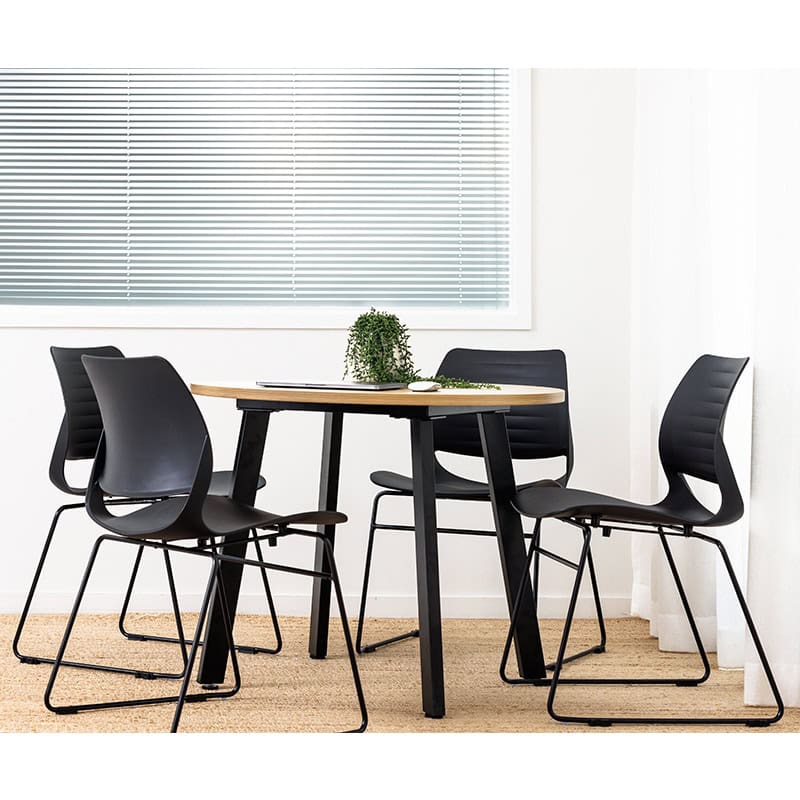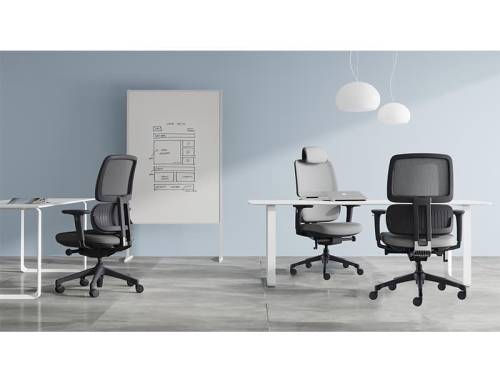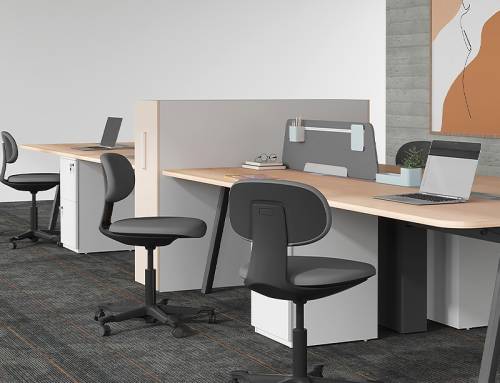Posture, an essential aspect of our overall health and well-being, is often compromised by the furniture we use daily, particularly our office chairs. As many of us navigate the working day seated at a desk, the significance of a properly designed chair shouldn’t be understated. An ongoing debate is whether chairs without wheels are better for our posture.
Let’s dive into the science to uncover the truth.
Understanding the Basics of Good Posture
Good posture involves training your body to sit, walk, stand, and lie in positions where the least strain is placed on supporting muscles and ligaments. When seated, the key is to keep your back straight and shoulders back and distribute your body weight evenly on both hips.
Maintaining good posture can be challenging for those working long hours from a chair, leading to discomfort and musculoskeletal disorders over time if not addressed.
The Role of Office Chairs in Posture Support
A critical part of maintaining an upright, supported sitting position lies in the design of your office chair. The chair should be ergonomically designed to support your spine’s natural curve and allow your feet to rest flat on the floor. Here is where the debate arises between wheeled and office chairs without wheels, as the mobility or lack thereof can influence the user’s posture.
The Case for Chairs Without Wheels
Chairs without wheels, often called stationary chairs, provide a firm and steady base. This steadiness can encourage users to sit correctly, directly influencing their posture. There’s an argument suggesting these chairs could limit improper movements, such as constantly rolling or shifting, which can lead to slouching or straining certain body parts.
Scientific Evidence and Expert Opinions
Scientific research and experts in ergonomics share a consensus — the key to posture-friendly seating is not so much about the presence of wheels but the adjustability and design of the chair. If a chair without wheels encourages correct posture based on its design and comfortability, then it has fulfilled its role in promoting healthy posture.
The Importance of Personal Comfort and Awareness
When choosing an office chair, personal comfort and awareness of one’s posture habits are equally important. A stationary chair might help promote good posture for some individuals, while others might find the convenience and flexibility of a wheeled chair a better fit. Understanding your needs, habits, and what feels best for your body is important.
Conclusion
When it comes to posture, chairs without wheels may offer a potential benefit by minimizing unnecessary movement and thus promoting better seating habits. However, this advantage does not make them the conclusive answer to the quest for a perfect posture. The focus should be redirected towards chairs designed with height and backrest adjustability and sufficient support for your back’s natural curve.
Remember that the healthiest posture is an active one, and no chair (regardless of how ergonomically flawless) can compensate for the negative effects of prolonged sitting. Adopt regular movement and standing breaks and exercise to ensure optimal musculoskeletal health.
Balancing ergonomic design, personal comfort, and posture consciousness remains the secret ingredient for maintaining healthy posture in the office environment.








